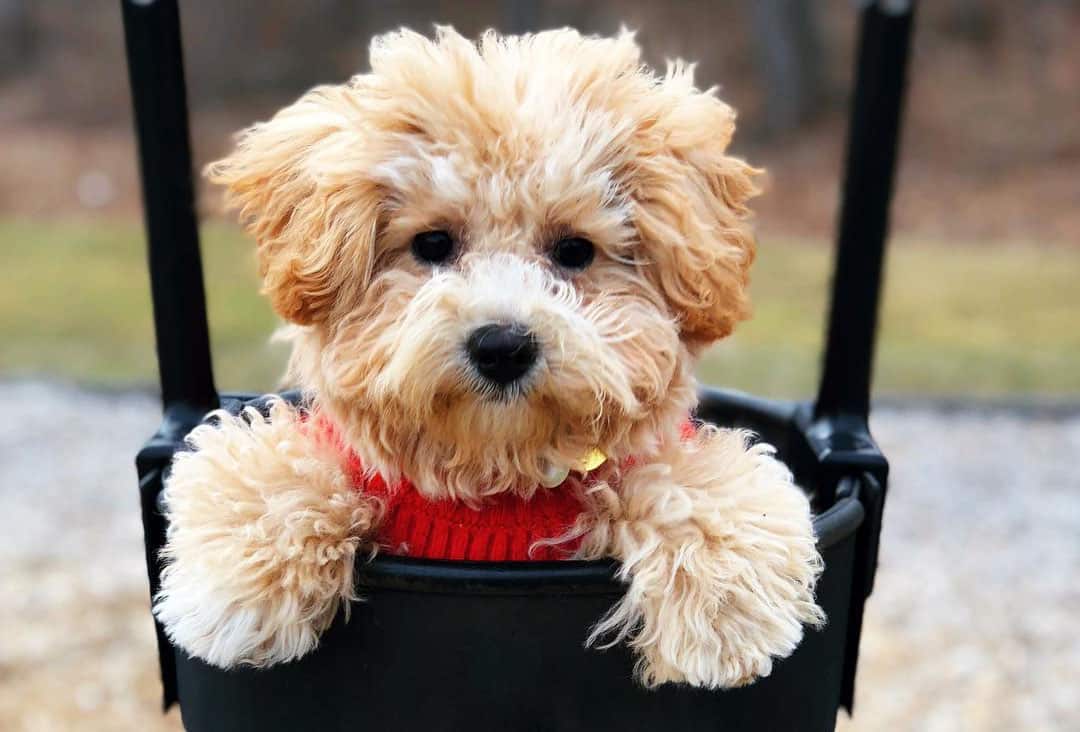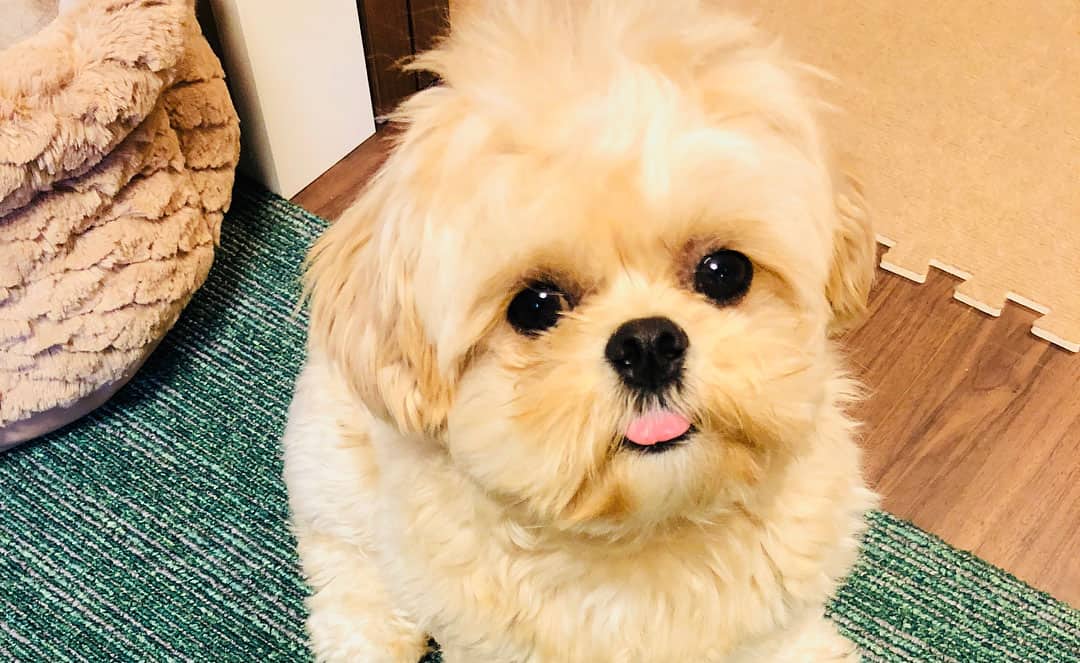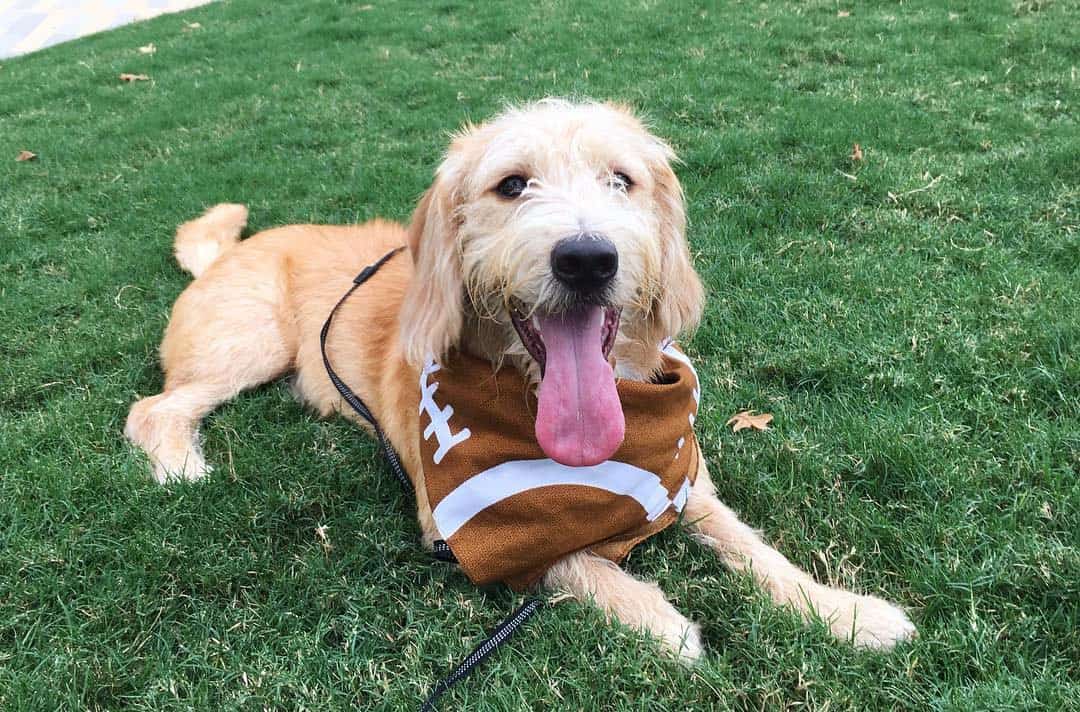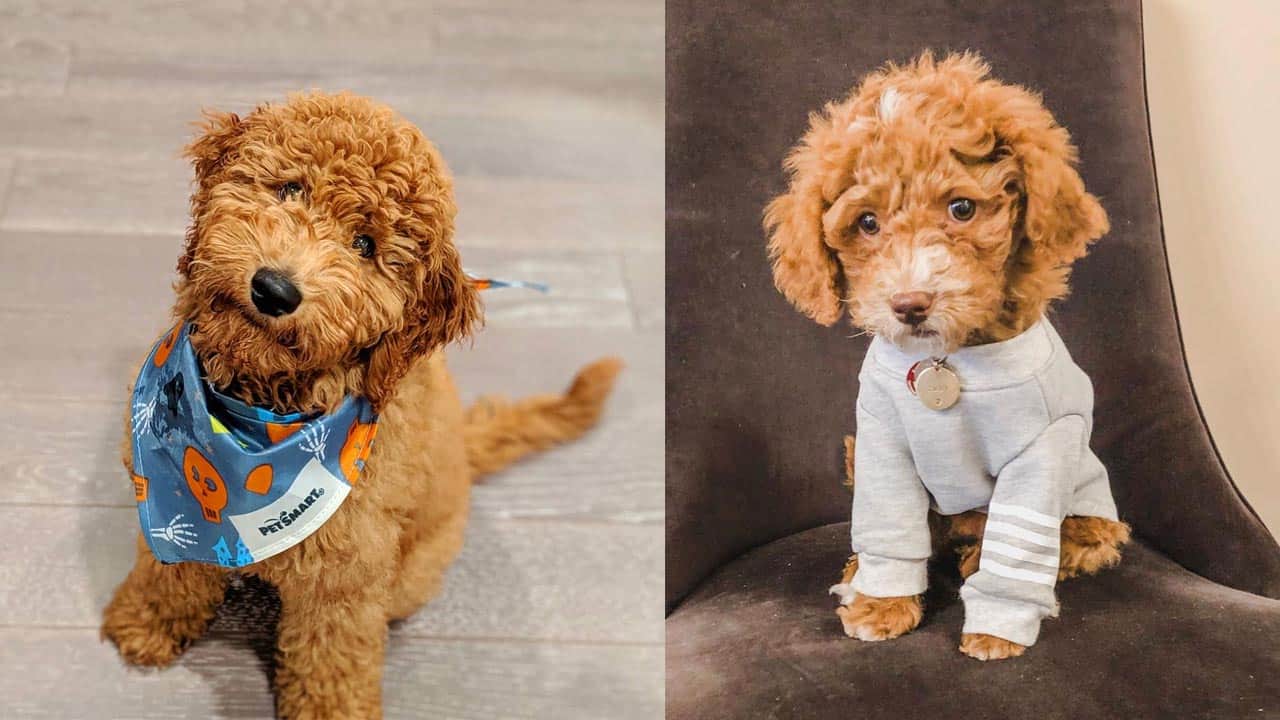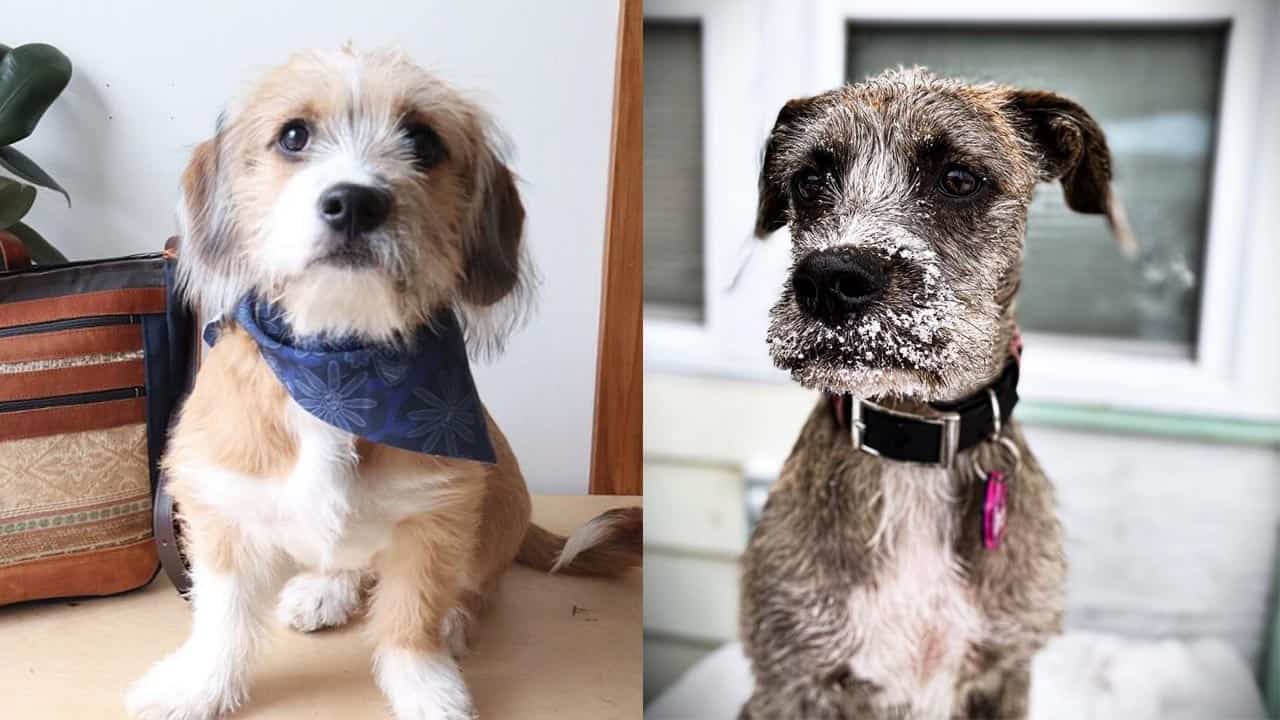Shihpoo pups are the cutest and sweetest dogs, as you already know. Shihpoo puppies, a hybrid breed of Shih Tzu and some Poodle, are becoming increasingly well-liked among new pet owners and families with small children.
Because they are a hybrid between two breeds, they may get positive and negative traits from both parents.
All puppies and breeds have unique personalities, but most Shihpoos can be easy to raise. However, Shihpoos have a few traits their families should be aware of in advance to be ready.
In this post, we’ll discuss the most common behavior problems that Shihpoos tend to exhibit, why they could be acting this way, and how you can control them.
1. Potty Training
Unsurprisingly, potty training is the biggest issue that families with Shihpoo puppies have to deal with. Unfortunately, some Shihpoo owners can agree that the best word to describe a Shihpoo is “stubborn.”

First of all, rather than the puppy, the owners and the environment are more responsible for the dog’s potty training success.
A Shihpoo is still potty trained even if they have accidents inside the house. Shihpoos, like all dogs, need to become familiar with the areas of the house that make up their den.
Starting with their crate, you should expose them to one room at a time before moving on to the next, frequently taking days or weeks to let the dog become acquainted with each space.
Your puppy will learn that the room is a part of your family’s den and not a place to relieve itself by engaging with your Shihpoo in one room at a time.
You should also confirm if the sleeping room is large enough. For example, a dog will relieve himself, even in a tiny, cramped area.
It is, therefore, ideal for designing a gated space that can accommodate a bed and pee pads. In this manner, there is a considerable likelihood that the pads will be utilized even if you are not informed.
Be ready in advance if this is your first time taking a Shihpoo puppy home. Understand what it takes to housebreak a dog. For the first few weeks, be prepared to get up twice or three times through the night to help the puppy get through the night without having an accident in the kennel.
Consider potty training from your dog’s point of view. For example, you might anticipate your dog not having any accidents on the bed if you want them to sleep there.
However, the dog believes that jumping down and going to the bathroom in a bedroom corner is necessary for keeping their den tidy.
Like other dogs, Shihpoos don’t harbor resentment. They don’t get pooped or pee intentionally inside your house to get back at you by going where you don’t want them to.
The potty training tips you provide dogs from when they were still young will be retained by them until adulthood. So before you bring new puppies home, if you haven’t learned how to teach them, you’re both in for some difficult learning experiences.
2. Separation Anxiety
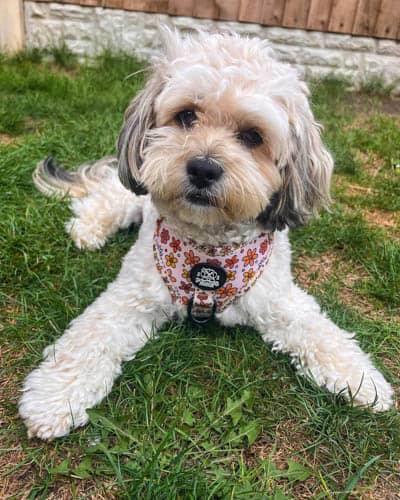
A variety of different problems can bring on separation anxiety. Before bringing a puppy home, think about how the following may impact its mental stability:
- The puppy is still too young.
Shihpoo families claim that Shihpoos are the cutest and most adorable puppies ever, but you should be careful not to let your enthusiasm cloud your better judgment.
Like all dogs, Shihpoos must spend around two months with their mother and other puppies to avoid separation anxiety.
It is a red flag that you are dealing with a novice breeder or perhaps even an evil puppy mill if the breeder you are working with demands you take ownership of the dog before eight weeks.
Leave the puppy with the mother and siblings for at least eight weeks if you can, both for yourself and the puppy.
- You don’t spend enough time bonding with them.
You shouldn’t be shocked by the puppy’s separation anxiety if you bring a Shihpoo puppy into your home and plan to return to work full-time in a few days, leaving your puppy alone all day.
Little is known about life to young puppies. They are aware that their mother provides them with milk. They are aware that they get to play with their siblings. They also understand that life smells like their mother’s den.
Most breeds wean their puppies onto nutritious puppy food at seven weeks. Less than a week later, the puppy is taken away from its mother, brothers, and comfortable den, completely confusing the dog.
Therefore, you shouldn’t expect your puppy to feel comfortable in your home alone without you if you don’t spend a week bonding with him or her, engaging with them in the new place, and teaching them the fundamentals of eating from a bowl, going outside to relieve themselves, and playing together.
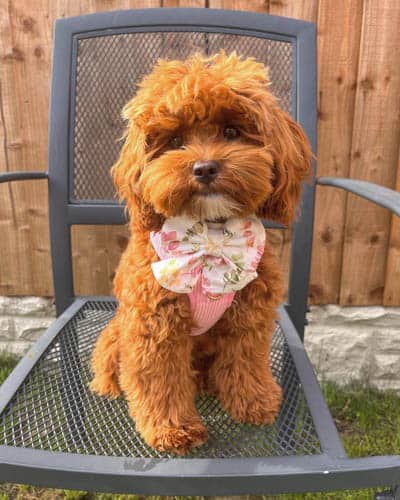
- They are left alone for extended periods.
Our puppies have no issues staying in their kennels by themselves for three to four hours during the day. Staying in their dens for much of the day and sleeping there align with wolves’ natural tendencies.
Longer amounts of time, however, may be intolerable for them due to the size of their bladders and the amount of energy they accumulate.
For example, consider hiring a sitter or walker to stop by for 30 minutes of play or exercise if you must be away from home all day for business.
Shihpoos can make wonderful apartment dogs, but all dogs need to connect with people and other dogs in person to satisfy their physical and emotional requirements.
- They don’t feel safe in open environments.
Regarding the impulse to seek shelter in a den, many Shihpoo puppy genuinely enjoys being in close quarters.
Your puppy won’t experience the same sense of security that a small pen or crate provides if you leave them alone in a room or even a huge open pen.
The fact that huge hawks and other raptors don’t swoop into your home in search of their next meal is still a lesson they haven’t learned.
Protecting your Shihpoo will give you some piece of mind while you’re away. Give them a crate or compact container to hide inside when they feel anxious. Their infant’s blanket is the Shihpoo’s crate.
3. Chewing and Teething
Almost one in seven or one in eight Shihpoo households experience the third most prevalent problematic puppy behavior.

Your puppy may experience some difficulties as they approach puberty that are strikingly similar to those faced by human infants.
This usually begins between the ages of four and six months for Shihpoos and can last for two to four months. When our Shihpoo was ten or eleven months old, we plucked baby Shihpoo teeth out of our carpet.
Make sure your puppy has a choice of chew toys to help them get through the teething process as it starts. Shihpoos have uncomfortable and sensitive gums, just like young children may. So think about purchasing a tiny chew with nubs.
To relieve gum discomfort, think about purchasing a tiny chew with nubs. Toys you can freeze might help your Shihpoo before they lose a tooth by providing some relief from the pain.
Your Shihpoo will eventually go through the teething process. Still, you may make the process less painful and reduce your Shihpoo’s desire to chew on your furniture, fingers, and other valuable items.
4. Picky Eaters
As Shihpoos reach adulthood, they tend to develop a considerably greater awareness of their food, much like human teenagers. Some may even exhibit pickiness for a few weeks or months with what food they eat.
They will typically transition to adult food between the ages of nine months and one year if you continue to provide them with good food, don’t give them table scraps, and assist them in avoiding ruining their appetites with too many snacks (even healthy snacks).

5. Difficulty Socializing With Other Animals
If you intend to introduce a Shihpoo into a home with other pets, read up on a few strategies you may use to reduce rivalry and conflict between animals. It can take several days, but it will be worthwhile.
You should socialize your Shihpoo with other dogs and cats if you don’t have any other pets. Find a dog park close to your house and visit it once or twice every week. Interactions with other dogs will be emotionally beneficial for your puppy.
Avoid attempting to socialize your dog at home with other dogs, though. Since dogs are territorial animals, even just having another dog inside the house might threaten the resident dog’s safety and cause even the most gentle dog to become hostile.
Make play dates with other dogs if your town doesn’t have a dog park, but arrange to meet at a park or other open area.
Neutralize the environment to reduce territoriality and increase playtime. Don’t bring your dog’s toys with you to share, either. Purchase toys that can only be utilized in neutral environments.
Conclusion
Shihpoos are cute and lovable when they behave properly, but if they are neglected, they may become a nightmare. Remember that asserting yourself as the alpha can help prevent serious situations like aggression in your pup and may even eliminate the likelihood.
These methods will go a long way toward ensuring that your relationship with your Shihpoo is long and rewarding.
